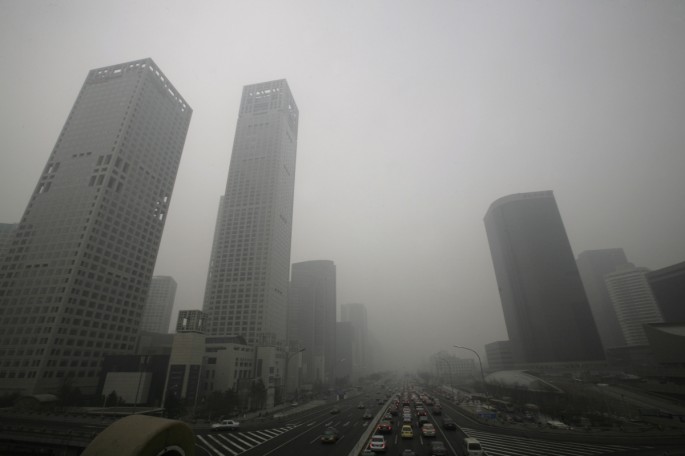Chinese authorities are intensifying efforts to improve air quality in Beijing in time for the 2022 Winter Olympic Games, which the capital hopes to host.
Barbecues are the latest target as city officials announced Wednesday a ban on restaurants operating outdoor barbecues in selected suburban areas.
According to officials, the restrictions are part of a campaign to bring "Olympic blue" to Beijing--a reference to "APEC blue," a term coined in Nov. 2014 during the Asia-Pacific Economic Cooperation (APEC) summit in the capital.
Strict pollution controls imposed during the APEC summit, which was attended by leaders from the Asia-Pacific region, led to a sharp drop in air pollutants.
The resulting clear skies were dubbed by Beijing netizens as "APEC blue."
Air pollution, which has plagued the city for decades, is said to be a major factor affecting Beijing's bid for hosting the 2022 Winter Games.
In the first quarter of this year, Beijing saw its average density of PM2.5 (airborne particles smaller than 2.5 microns in diameter) fall significantly due to pollution control and favorable weather, the Shanghai Daily newspaper reported on Friday quoting city officials.
According to the Beijing Environmental Protection Bureau, the average density of PM2.5 dropped by 19 percent in the first quarter compared with the same period in the past year. The average densities of PM10, sulfur dioxide and nitrogen dioxide also fell by 8.8 percent, 42.9 percent, and 11.4 percent, respectively.
The improvement in air quality is attributed to reduced coal burning, a drop in construction activities and favorable air conditions that helped disperse pollutants, said Chen Tian, head of the Beijing Environmental Protection Bureau.
In 2014, Beijing posted a record 2.8-million ton drop in coal use. And in March this year, two sets of coal-burning power generation facilities were closed.
The city is planning to further improve its energy structure to keep coal consumption under 15 million tons, phase out 200,000 vehicles and shut down over 300 million factories by the end of the year, officials said.
Meanwhile, neighboring Tianjin municipality and Hebei Province also saw an improvement in air quality in the first quarter. PM2.5 density fell by 15 percent in Tianjin and 25 percent in Hebei Province year-on-year in the first quarter, according to the Shanghai Daily.
Beijing and Almaty, Kazakhstan, are vying to host the 2022 Winter Olympics. The International Olympic Committee will vote to determine the host on July 31 in Kuala Lumpur, Malaysia.



























